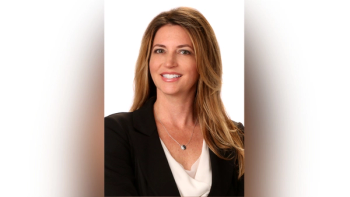
Key Points to Success in Decentralized Alzheimer’s Diagnostic Clinical Trial
This article highlights how C2N Diagnostics and Firma Clinical Research teamed up to create a successful Alzheimer's diagnostic clinical trial while allowing participants to remain in their homes.
Predicting Alzheimer’s Disease in patients – in advance of symptoms – is not easy. To date, physicians either need to perform a spinal tap or a PET CT scan. The former is invasive, and the latter, while less involved, is still expensive running anywhere from $6,000-10,000. C2N Diagnostics is a diagnostics company developing state-of-the-art analytical technologies for identifying and quantifying blood-based biomarkers for neurodegenerative disorders, with a current focus on biomarkers specific for Alzheimer’s disease pathology.
“There is a critical need for a simple predictor like a blood test – something that correlates with the accumulation of amyloid plaques in the brain,” said Kevin Yarasheski, PhD, senior vice president at C2N Diagnostics.
The company had previously developed such a test, but validating it in an appropriately conducted clinical trial presented a number of challenges. This group of patients had some level of dementia and traveling to a clinical site for a blood draw would have been burdensome.
“We wanted to relieve this burden and have the patients remain in their homes. But we had real trouble finding a company able to meet the requirements for a decentralized blood collection – and the timeline,” said Yarasheski. He eventually found Firma Clinical Research, a niche service provider that supports the drug and medical device development process with advanced in-home patient visits, data management, biostatistics, and medical writing.
Firma was contracted to lead the recruitment effort (ensuring the eligibility of participants and performing a fully compliant informed consent process), collect and process around 500 blood samples from participants in their homes, and ship the samples to C2N for testing. The timeline to complete everything from the informed consent to completion of blood sampling and data collection was six months.
Meeting study challenges
While blood draws are common among investigational protocols for home health visits, this study presented several interesting challenges, including and as outlined below, a site-less (virtual) trial, strict timelines due to the nature of the study protocol, patient cohort, and complex in-home blood sample processing requirements.
Siteless trials. As a completely decentralized trial, there were no sites and therefore no Principal Investigators normally associated with those sites. Firma’s team of home trial coordinators contacted 1,185 potentially eligible patients to review the study details. Given the Alzheimer’s Disease indication, these discussions involved the caregivers as well as their patients.
The study would be blinded research so the home trial coordinators had to explain the patients wouldn’t be getting the results of the test – a situation that can significantly impact recruitment success. Despite this, more than 72% of referrals consented to participate and nearly 80% of all patients who consented ultimately participated in the trial.
Blood test timelines. Potentially eligible participants were identified from a secure centralized database and their contact information shared with Firma, so the C2N Diagnostics clinical researchers remained blinded to all identifiable and health-related patient information.
In order to validate their blood test, C2N biostatisticians needed to compare the blood test results to an amyloid PET CT scan that determined whether amyloid plaques were present or absent in their brains. Prospective patients, therefore, had to have already received a PET CT scan so C2N could calculate the accuracy of the blood test. Blood samples needed to be collected from each patient within several months of their amyloid PET CT scan, which necessitated the aggressive timeline.
“If Firma didn’t contact, consent, enroll and obtain blood samples from the patients before June 2019, all potentially eligible patients would have disqualified,” recalls Yarasheski. “We had to work very quickly to meet the aggressive enrollment requirements.”
Blood draw accuracy. Yarasheski contracted with Firma in September and, by October, blood samples were arriving at the lab. Each of the 674 home health visits included an intense and complex on-site blood processing protocol. The biomarkers degrade quickly so home visit nurses would need to centrifuge the blood in-home within 30 minutes of collection, freeze the plasma samples within an hour, and ship appropriately to arrive at C2N Diagnostics within 24 hours.
While, blood draws are a common investigational protocol for home visits, this case required immediate processing following collection to ensure sample integrity. This required additional training and attention to detail for the home nurse staff. In addition to standard comprehensive protocol training, additional training included video training sessions, continual feedback and monitoring and deployment of instructors when needed for support.
“It was not an easy protocol. Firma managed to consent 600 out of over 1,000 potentially eligible patients, they completed everything early, andthe samples were quality,” said Yarasheski. Ensuring technicians were sufficiently trained created a critically diligent collection process and resulted in high-quality data for analysis – especially important given the biomarker validation sought on this trial.
Final thoughts
Speed-to-market is always an overarching goal and is impacted by the performance of any number of moving pieces within a clinical trial. Firma geo-clustered health providers when possible to support the largest number of patients with the most focused number of highly-trained providers, and to deliver both cost and time savings for C2N.
As a result, C2N was able to reallocate the budget savings and increase the number of samples collected all within the original timeframe.
The possibility of these results leading to new diagnostic options for patients is an indicator of the study being a success. However, it is not the only good that can come from the study. As more teams explore decentralized or hybrid study designs, the work performed by C2N and Firma can offer valuable insight into what a successfully conducted decentralized study could look like.
Melissa Nezos, Vice President, Clinical Operations, Firma Clinical Research
Newsletter
Stay current in clinical research with Applied Clinical Trials, providing expert insights, regulatory updates, and practical strategies for successful clinical trial design and execution.




